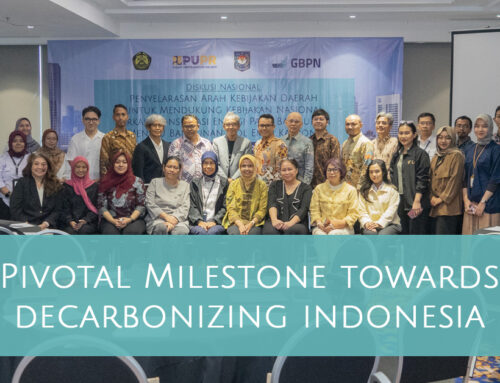GBPN is scaling up and sharpening the focus of its Network Of Experts to support its mission to decarbonise the building sector.
Kate McFarlane, GBPN’s Head of Networks and Engagement, said the community was a powerful force in the fight against climate change.
“We have a growing community of experts who are leaders in their respective fields, and who come from the building and construction sector as well as a diverse range of additional professional backgrounds,” she said.
“We work closely with our local experts to develop approaches such as our Seven Key Strategies to decarbonise the building sector through policy reform at the local level.
“This ensures we are connecting local to global and vice versa. Many of our experts are part of local coalitions formed by GBPN as part of its approach to bottom-up policy reform. This includes our JINDA coalition in India and its sister coalition, HIDUP, based in Indonesia.”

The worldwide community is especially focused on Asia, where India, Indonesia and southeast Asian countries are already among the largest sources of building sector greenhouse emissions due to their rapidly expanding building footprint.
Ms McFarlane said, in addition to growing its expert community, GBPN is also diversifying its focus to include specific communities of practice to support critical areas of policy evidence in economics, finance, health and behavioural insights. This will provide creative new opportunities to reduce carbon emissions in the building sector.
“Our coalition model has already been used successfully in several countries in delivering real policy change on the ground – including in current projects in India and Indonesia,” Ms McFarlane said.
“The beauty of the approach is that it can be replicated and scaled for rollout anywhere in the world using tried and tested strategies.”
She said the community has been a thriving presence on GBPN projects for many years and this was only becoming more important in the lead-up to 2030.
“The growth in new buildings is particularly intensive in Asia. By 2050 there will be 280 billion m2 more buildings than today across the globe and many of these will be built in countries like India and Indonesia where GBPN’s work is focused,” Ms McFarlane said.
“This means GBPN’s work is more important than ever as we enter the next critical 8 years for climate action to keep the global average temperature rise at 1.5 °C.
“The specialist knowledge and skills of our experts ensure our projects are truly responsive to local conditions and have a real impact on reducing emissions in the building sector.”
Bringing Global Policy Evidence and Local Expertise together
Ms McFarlane said GBPN’s approach was to bring the right people together, forming powerful coalitions in the right locations to deliver maximum impact.
“We support localisation, elevating local experts and providing them with global best practices and research,” she said.
“A coalition driven by local experts, influencers and partners is greater than the sum of its parts. Encourage diversity and linkages to the latest global research and best practice, and the innovation and impacts will be unstoppable.”
“Elevating local expertise from the jurisdiction where the policy reform is underway is shifting the power dynamics back to where they belong.
“Our experts are an important part of the wider GBPN community, which includes partner organisations and individuals who work in the area or are committed to addressing climate change and advancing the Sustainable Development Goals through the buildings sector.”
Share This Story, Choose Your Platform!
Stay in touch with how we’re transforming the buildings sector
GBPN runs innovative building policy reform programs in key regions around the world that aim to tackle the climate emergency by decarbonising the buildings sector. Stay up to date with our newsletter.
Stay in touch with how we’re transforming the buildings sector
GBPN runs innovative building policy reform programs in key regions around the world that aim to tackle the climate emergency by decarbonising the buildings sector. Stay up to date with our newsletter.







